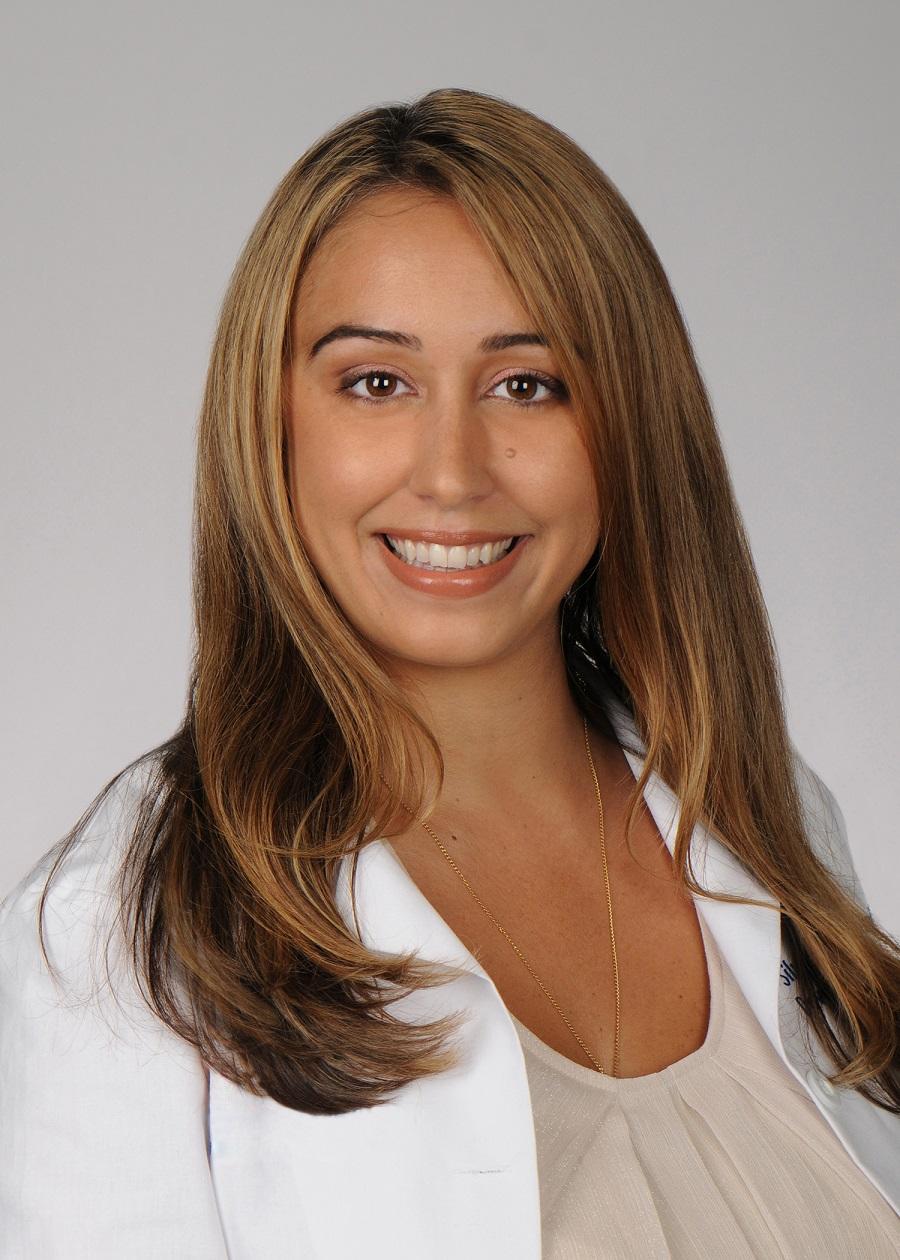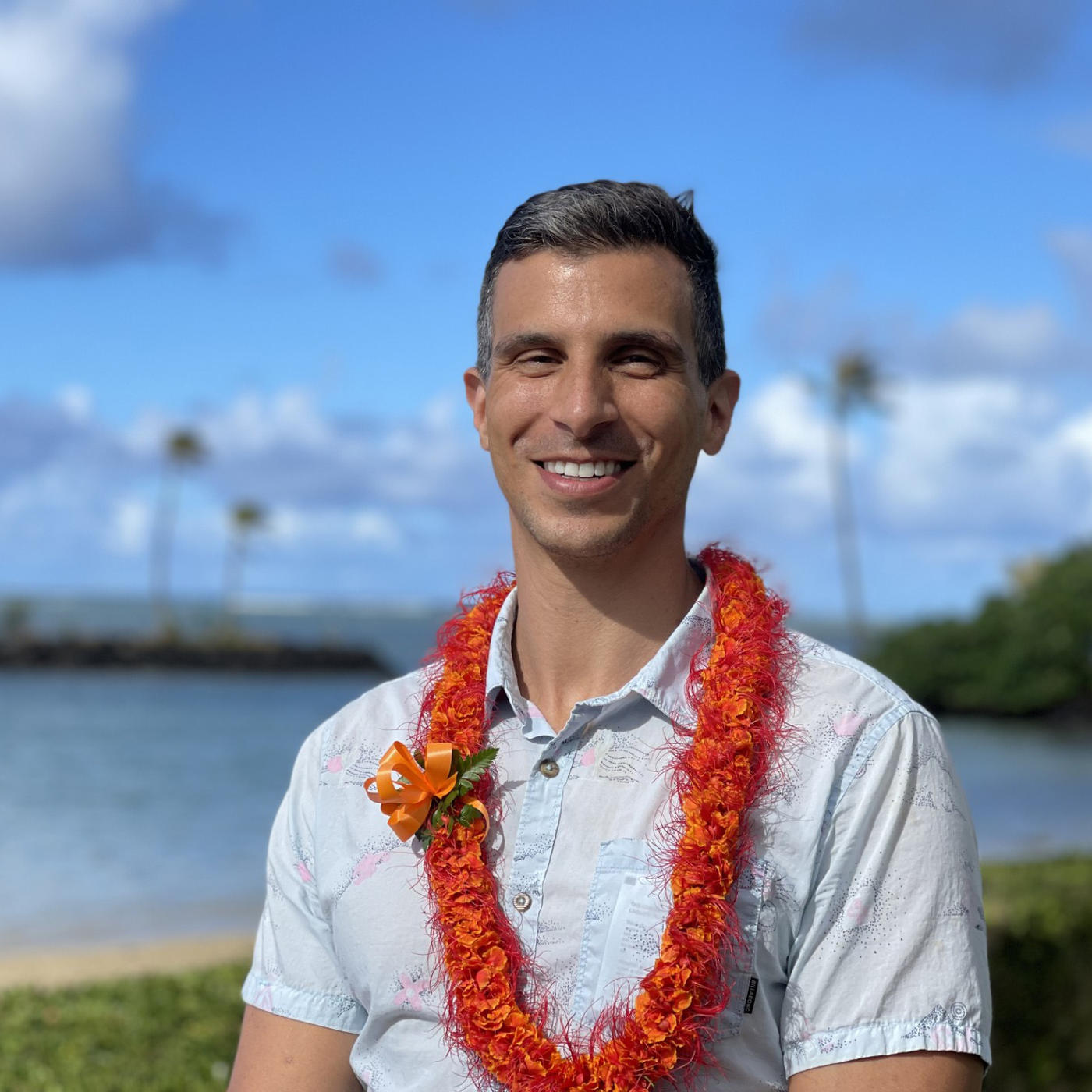As a developmental behavioral pediatrician (DBP), Dr. Silvia Pereira-Smith fills a critical role in caring for her young patients with autism, ADHD, and other learning and behavioral disorders. Demand for these types of pediatricians in the United States far outweighs the supply.
“Ten percent of the pediatric population in the United States has a neurodevelopmental condition, yet there are fewer than 1,000 developmental behavioral pediatricians in the U.S.,” says Dr. Pereira-Smith, a Class of 2012 AUC School of Medicine graduate, who practices at the Medical University of South Carolina in Charleston, SC.
But she’s also stepped up to meet another urgent need within her profession: improving access to care for an increasingly diverse patient population. For Dr. Pereira-Smith, this means everything from using her language skills to offer autism clinics in Portuguese and Spanish, to researching the effects of racism on children’s development and running workshops on anti-racism through a DBP lens.
A Trilingual Approach to Patient Care
Born in Venezuela, Dr. Pereira-Smith learned Spanish as her first language, followed by Portuguese and English. After moving to the U.S. as a child, she grew up in Carteret, New Jersey, where she became the first person in her family to graduate from high school. She then went on to earn her bachelor’s degree at LaSalle University before pursuing her MD at AUC.
“My parents had only gone to grade school, so I did a lot of learning for my education and career on my own,” she says.
During her clinical rotations in New York, she found that her trilingual skills came in handy when speaking with patients. Soon, she was being tapped to help interpret for her colleagues. After completing her pediatric residency at New York University/Winthrop University Hospital, Dr. Pereira-Smith moved to South Carolina for her developmental-behavioral pediatric fellowship and became formally certified to speak with patients in Spanish and Portuguese without a translator.
“I’m in such a subspecialized field that it can be difficult to go through a translator,” says Dr. Pereira-Smith. “It’s definitely been beneficial to work directly with patients. I’m able to detect autism in non-English speaking children here, and we’ve expanded our autism clinics to be conducted in Spanish and Portuguese.”
Dr. Pereira-Smith also works to provide education in multiple languages for parents of children with special needs. She partnered with a mentor to disseminate two informative videos on social media, first among the local Latino community and later on a broader scale with the Society for Developmental Behavioral Pediatrics (SDBP).
“Early on in the pandemic, when there was so much buzz going around, I felt like my Spanish and Portuguese-speaking families were way behind on information,” says Dr. Pereira-Smith. “It was all about answering the simple questions: How is this spread? How can we protect ourselves? Hand-washing, hygiene, masks—things that many of my English-speaking families were already aware of, but this very basic information hadn’t gotten to them yet.”
In addition to language barriers, there are cultural mores which need to be considered. “There are certain struggles that I tend to see in my non-English speaking families—misconceptions and patterns of thought. For example, mental health is a taboo topic in the Portuguese population,” said Dr. Pereira-Smith. “Seeing that brings up an important discussion on cultural experiences, especially in a state where they truly are a minority.”
Promoting Anti-Racism in Pediatrics
As Dr. Pereira-Smith works to increase healthcare access for patients across cultures and backgrounds, she’s committed to speaking out against racism, educating others about its role in child development, and researching health disparities as a result of racism.
Dr. Pereira-Smith regularly collaborates with a group of fellow anti-racist pediatricians to present sessions and workshops for physicians on a national scale. The sessions cover topics under the umbrella of “Racism as an Adverse Childhood Experience,” including development of racial awareness throughout early childhood through adolescence, ways of addressing experiences with racism and perceptions of race with patients and families, and resources to use with parents for talking to their children about race.
“When you consider the impact of racism as an adverse childhood experience (ACE), we know that ACEs change your allostatic load and medically lead you to be at risk for certain health issues in the future,” says Dr. Pereira-Smith. “We focus on racial literacy, health disparities, and how to support families in talking about these issues—not being color-blind, but being anti-racist and working to dismantle what’s in our institutions and our country.”
She continues to use her platform as a physician to help incorporate these topics into medical education and empower other healthcare professionals.
“So many people have been working on the broader anti-racism movement for centuries, and yet recent events show that there is much more work to be done,” says Dr. Pereira-Smith. “I’m happy to be in a position to promote this kind of education and its place in pediatrics. I just want to spread the message as far as possible.”





